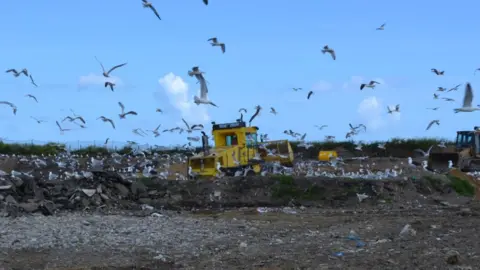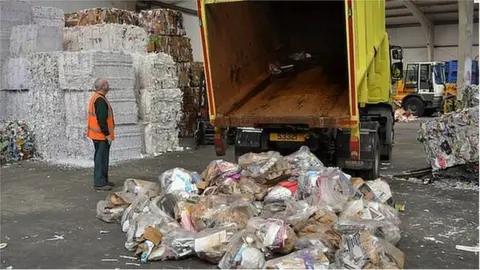Guernsey household waste halves under new system
 BBC
BBCThe amount of household waste in Guernsey has more than halved since a pay-as-you-throw scheme was introduced.
The system, which came into effect a year ago, has seen recycling increase by about 500 tonnes compared to the first six months in 2018.
More than 1,700 tonnes of food waste was collected from households in the first half of this year.
Projections for 2019 say 65% of all household waste on the island is being recycled.
According to Sarah Robinson, Guernsey Waste operations manager, the scheme is "well on track" to reach the target of 70% by 2030 and already ahead of their 60% by 2022.
Mrs Robinson said monitoring recycling and waste habits showed a "large shift in behaviour, with lots more using the recycling collections".

According to a spokesman for the States Trading Assets, "most of the decrease" has been caused by the introduction of a weekly food waste collection.
This food is exported for "separate processing", generating electricity and producing compost material.
About 2,125 tonnes of black bag waste was collected in the first six months of this year, compared to 5,100 tonnes for the same period in 2018.
Since the introduction of kerbside collections, about 15% more glass has been recycled.
Richard Evans, deputy managing director of States Trading Assets, said: "We still want people to reduce what they are throwing away."
A switch to fortnightly general rubbish collections coincided with the introduction of food waste and glass pick-ups.
The pay as you throw charge for non-recycled waste, which was brought in in February, has also contributed.
A survey of more than 1,000 homes in Castel and St Peter Port in June found more than 90% of households now used doorstep recycling services.
